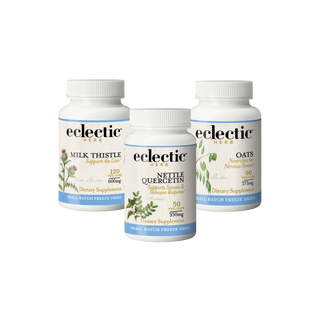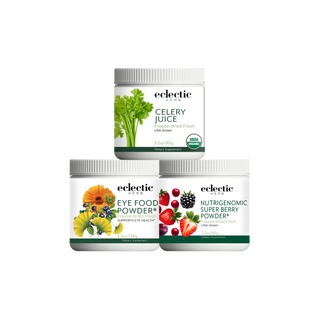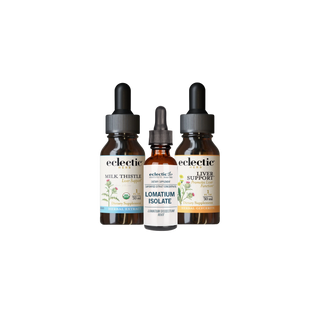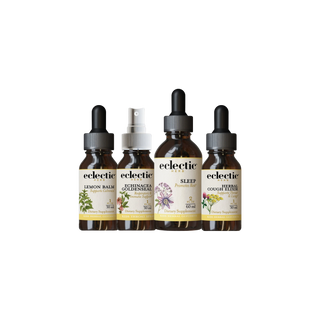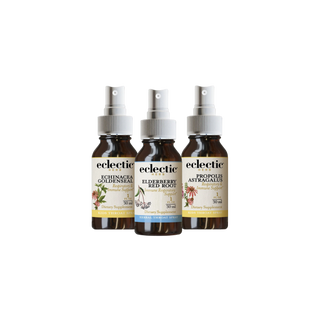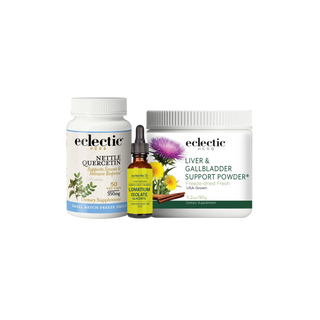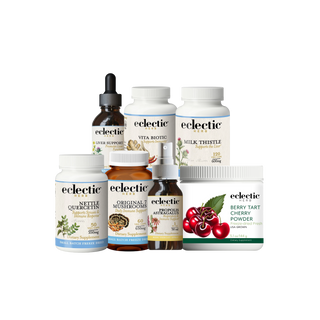In this place, time stands still each leaf, bottle, and page whispers stories of healing from a bygone era. The voices of herbalists, Eclectics, and medicine-makers long past offer their wisdom to guide the future.

Virtually Take a Peek at the Eclectic Institute Library
Welcome! I’m inviting you to take a virtual peek inside the Eclectic Institute Library, a private collection of botanical history, Victorian herbal artifacts, and eclectic medical era treasures that I’ve curated over the years in memory of my late husband, Dr. Ed Alstat .
Ed was a pharmacist, herbalist, and naturopathic physician who dedicated his life to preserving the roots of Eclectic and Naturopathic Medicine. He founded the Eclectic Institute (now known as Eclectic Herb) with a mission to spread plant-based healing. His passion lit the spark, and I’ve been carrying that torch ever since.
If I’m being honest, I’m a little obsessed (in the best way!) with the history of American herbalism, especially the Eclectic Era, when doctors started formally documenting case histories on the effectiveness of herbs. I’m also fascinated by the fact that so many of today’s pharmaceutical giants got their start as herb c ompanies.
While the library isn’t open to the public, I’ve created this blog to invite herbalists, naturopaths, historians, students, and plant-curious souls to explore its contents. I hope it sparks your curiosity, inspires your work, and deepens your connection to the incredible world of herbalism.



A Snapshot of the Collection
The Eclectic Institute Library is a living time capsule of herbal history. Each item within it speaks of plants and people: the healers, teachers, pharmacists, and folk practitioners who once turned to herbs for healing. Bottles of herbal remedies, embossed prescriptions, worn books, and traveling apothecaries all carry the imprint of a time when plant medicine was not alternative, it was mainstream.
While the library spans centuries, its heart lies in the 19th and early 20th centuries, a golden era of botanical medicine in America. During this period, Eclectic physicians, named for their commitment to choosing the best healing methods from diverse traditions, rose to prominence. Rooted in the earlier Thomsonian movement, which championed accessible, plant-based remedies for the common person, the Eclectics sought to combine herbal knowledge with scientific inquiry, rejecting the harsh chemical treatments that other physicians of the time were using.
The Eclectics operated respected medical schools, published textbooks, and trained thousands of doctors. Around this time, herbal medicine lined pharmacy shelves, and many companies that would later become pharmaceutical giants (e.g. Eli Lilly and Abbot Laboratories) got their start selling herbal remedies.




A Closer Look Inside
The artifacts in this collection reflect that world: a world where a doctor might carry a mahogany apothecary box filled with herbal remedies to house calls, where prescriptions were handwritten for tinctures of echinacea, and where a young pharmacy student might memorize "crude drugs" by studying "raw plant material". It is a time largely forgotten by modern medicine, but one still brimming with wisdom, beauty, and relevance.
The Eclectic Institute Library was created to honor and preserve this legacy, not as a relic of the past, but as a source of inspiration for the future.
Victorian Dried Herbs
Beautifully preserved botanical specimens from companies like S.B. Penick & Co. and Indiana Botanic Gardens, who dominated the crude drug trade. These herbs, once sold by mail order in boxed sets, were used in homes and early pharmacies across the country.
Eli Lilly’s Collection of Crude Drugs
A complete, pristine early 1900s pharmacy training kit containing 172 labeled herbal specimens, originally used to teach pharmacy students about "Crude Drugs" which were in fact all HERBS! A rare reminder that Eli Lilly began as an herb company, like many pharmaceutical giants of its time.
Traveling Apothecary Chests
A curated set of Victorian and Regency traveling medicine kits, including a finely crafted chest by S. Maw, Son & Sons. These chests housed herbal tinctures, powders, scales, tools, and salves. They were portable pharmacies for doctors and herbalists of the era to make their house calls with.
Rare Books & Medical Journals
Including original editions by Nicolas Culpeper, Wooster Beach, Finley Ellingwood, Harvey Felter, and John Uri Lloyd, as well as a full run of Eclectic Medical Journals. These texts detail the philosophy and clinical practices of the Eclectic medical movement.
Lloyd Brothers Items
From the early days of Lloyd Brothers, Inc., the library houses rare prescriptions, a vintage printing press stamp, and original herbal remedies, bringing to life one of the most respected names in Eclectic pharmacy.
Scientific Tools of the Trade
Period microscopes, scales, early tableting devices, herbal suppository molds, and other instruments used in herbal and pharmaceutical preparation are displayed throughout the collection.
Curiosities & Oddities
Including a Victorian phrenology head, reflecting the 19th-century fascination with mapping personality through skull shape. While now discredited, it reminds us of the evolving interplay between science, philosophy, and medicine.
Vintage Remedies
Many herbal tins, pill bottles, powders, and tinctures, with antique labels and bold marketing claims. These relics of early health advertising offer insight into how herbal products were once promoted, often with promises of vitality, beauty, and miraculous cures!
From Apothecary to Pharmacy Shelf: The Lasting Legacy of Herbs
Though much has changed, the influence of herbal medicine continues to echo through modern healthcare. Today, around 25% of prescription drugs are directly derived from plants, and over 50% are inspired by natural compounds.
The World Health Organization (WHO) estimates that more than 80% of the global population still relies on traditional plant-based healing as part of their primary healthcare.






Conclusion
The Eclectic Institute Library is more than a preservation of artifacts, it’s a tribute to the people, plants, and principles that shaped the golden age of herbalism. Every bottle, book, and handwritten prescription carries with it the voice of someone who believed in the healing power of nature.
This collection exists to honor that legacy and to ensure it’s not forgotten. It reminds us that many of the world’s most respected pharmaceutical companies began by selling herbs, and that herbs were once not just respected, but central to everyday care.
By sharing these stories, my hope is to inspire a deeper connection to plants, not as a trend, but as a time-tested tradition rooted in care, curiosity, and respect for the earth. Whether you’re an herbalist, a student, or simply someone who loves old books and plants, may this virtual visit spark a sense of wonder and belonging.

